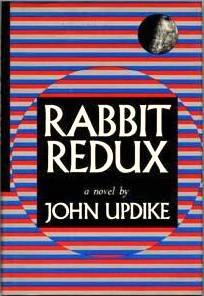
Jeanette Winterson is an English author. Her first book, Oranges Are Not the Only Fruit, was a semi-autobiographical novel about a sensitive teenage girl rebelling against convention. Other novels explore gender polarities and sexual identity and later ones the relations between humans and technology. She broadcasts and teaches creative writing. She has won a Whitbread Prize for a First Novel, a BAFTA Award for Best Drama, the John Llewellyn Rhys Prize, the E. M. Forster Award and the St. Louis Literary Award, and the Lambda Literary Award twice. She has received an Officer of the Order of the British Empire (OBE) and a Commander of the Order of the British Empire (CBE) for services to literature, and is a Fellow of the Royal Society of Literature.

Schindler's Ark is a historical novel published in 1982 by the Australian novelist Thomas Keneally. The United States edition of the book was titled Schindler's List; it was later reissued in Commonwealth countries under that name as well. The novel won the Booker Prize and was awarded the Los Angeles Times Book Prize for Fiction in 1983.

The Line of Beauty is a 2004 Man Booker Prize-winning novel by Alan Hollinghurst.

Manil Suri is an Indian-American mathematician and writer of a trilogy of novels all named for Hindu gods. His first novel, The Death of Vishnu (2001), which was long-listed for the 2001 Booker Prize, short-listed for the 2002 PEN/Faulkner Award and won the Barnes & Noble Discover Prize that year. Since then, he has published two more novels, The Age of Shiva (2008) and The City of Devi (2013), completing the trilogy.

Looking for Alaska is American author John Green‘s debut novel, published in March 2005 by Dutton Juvenile. Based on his time at Indian Springs School, Green wrote the novel as a result of his desire to create meaningful young adult fiction. The characters and events of the plot are grounded in Green's life, while the story itself is fictional.

The Hungry Tide (2004) is the fourth novel by Indian-born author, Amitav Ghosh. Set in the Sundarbans, it follows an unlikely trio who travel up river together to find the rare Irrawaddy dolphin. It won the 2004 Hutch Crossword Book Award for Fiction.

Rabbit Redux is a 1971 novel by John Updike. It is the second book in his "Rabbit" series, beginning with Rabbit, Run and followed by Rabbit Is Rich, Rabbit At Rest, published from 1960 to 1990, and the related 2001 novella, Rabbit Remembered.

Doing It is a young adult novel by author Melvin Burgess published in 2003. It is a story about the experiences of a group of English teenagers and their discovery of sex. It is told from the point of view of several young men as they learn about love, relationships, and loss.
Upamanyu Chatterjee is an author and a retired Indian civil servant. His works include the novel English, August: An Indian story, The Last Burden, The Mammaries of the Welfare State and Weight Loss. In 2008, he was awarded the Ordre des Arts et des Lettres for his contribution to literature.

The Mammaries of the Welfare State is an English-language Indian novel, the sequel to Upamanyu Chatterjee's debut novel, English, August, also told from the perspective of the fictional character Agastya Sen. It won the Sahitya Akademi Award (English) in 2004. The novel tells the story of political bureaucracy in the fictional state of Madna when an epidemic breaks out. The title derives from a line of dialog in the novel, where a civil servant states "In my eight years of service, I haven't come across a single case in which everybody concerned didn't try to milk dry the boobs of the Welfare State".

Descent: An Irresistible Tragicomedy of Everyday Life is a 2004 roman à clef by Sabrina Broadbent about a troubled marriage. The protagonist, Genevieve, is a psychiatric nurse whose husband, a filmmaker, leaves her at home while he travels the world having sexual intercourse with well-known actresses. Descent was Broadbent's debut novel and is based on her own marriage. After Descent, her next novel was You Don't Have to be Good, which also takes romantic problems as its subject. Descent was the inaugural winner of the W H Smith Raw Talent Award. Stephen Rodrick of The New York Times called Descent "a touching, smart novel."

English, August: An Indian Story is a novel by Indian author Upamanyu Chatterjee written in English, first published in 1988. It was adapted into a film of the same name in 1994. The novel portrays the struggle of a civil servant who is posted in a rural area and is considered to be a very authentic portrayal of the state of Indian youth in the 1980s. Chatterjee, who became a civil servant in 1983, provides key insight into the disparity between rural and urban lived experiences witnessed in his generation. The character Agastya Sen can also be seen in the sequel of this novel The Mammaries of the Welfare State.

Kunal Basu is an Indian author of English fiction who has written five novels – The Opium Clerk (2001), The Miniaturist (2003), Racists (2006), The Yellow Emperor's Cure (2011) Kalkatta (2015) and Sarojini’s Mother (2020). The title story of his only collection of short stories, The Japanese Wife (2008), was made into a film by the Indian filmmaker Aparna Sen. Basu has also written four Bengali novels – Rabi-Shankar (2016), Bairer Dorja (2017), Tejoswini O Shabnam (2018) and Angel(2020)
Chitralekha is a 1934 Hindi novel by Indian writer Bhagwati Charan Verma. The novel is about the philosophy of life and love, sin and virtue. The novel was written, while the author was still practicing law at Hamirpur and brought him immediate fame, starting his literary career.

Bridge of Clay is a 2018 novel by Australian author Markus Zusak. It revolves around five brothers coming to terms with the disappearance of their father.
Mary Morrissy is an Irish novelist and short story writer. She writes on art, fiction, and history. Morrissy is an elected member of Aosdána, Ireland's academy of artists and writers.
Prajapati(প্রজাপতি), a novel by Bengali author Samaresh Basu caused sensation with its publication. It was first published in 1967 in the Sharodiyo Desh special, a well known Bengali monthly magazine, a presentation of the Ananda Publishers. This novel is about a young boy who is used as the premises to understand not only his background but of the society at large. It was a young lawyer named Amal Mitra who first filed a charge of obscenity against the author Samaresh Basu and the publisher Shitangsukumar Dasgupta on 2 February 1968 for the novel Prajaproti. Later the Government of West Bengal supported Amal Mitra and spoke against Prajapoti. The Lower Court gave the verdict that the book was indeed obscene and had no literary value whatsoever. The High Court went on to uphold the just mentioned verdict. After a long time of almost seventeen years, Prajapoti got rid of the stigma 'banned' after a verdict given by Supreme Court of India in its favour. Reportedly, Prajapati had been published by Ananda Publishers as a hard cover book before the charge of obscenity had been made against it. In its second edition in 1985 soon after the verdict had been overturned it made record sales. The 11th edition of Projapoti states that the first edition had printed 8800 copies but from the second through the tenth edition, the sales went up to 48,000 copies!
Monique Roffey, FRSL, is a Trinidadian-born British writer and memoirist. Her novels have been much acclaimed, winning awards including the 2013 OCM Bocas Prize for Caribbean Literature, for Archipelago, and the Costa Book of the Year award, for The Mermaid of Black Conch in 2021.

The Tyrant's Novel is a 2003 novel by Australian novelist Tom Keneally.

Resolution is a 2016 historical novel by English writer A. N. Wilson. It is a fictionalised account of the life of the 18th century German naturalist, writer and revolutionary George Forster. Main aspects of Forster's life covered by the novel include his participation in the second voyage of James Cook, his marriage to Therese Heyne and his experiences in the French Revolution as a protagonist of the Republic of Mainz. The book is based on historical sources including the journals of Cook and of Forster's father Reinhold as well as Forster's works, but includes also some invented figures and deliberately deviates from some historical facts.















